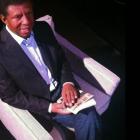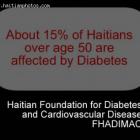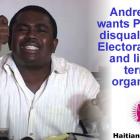ADVERTISEMENT
Photos
Victims of the Haitian Military Coup in 1991 against Jean-Bertrand Aristide
Victims of the Haitian Military Coup in 1991 against Jean-Bertrand Aristide
In the 1990's Haiti, under the leadership of Jean-Bertrand Aristide, was thrust into a worldwide political agenda that would make them a "problem" for the United States. A coup d'etat would occur in 1991 which would lead to the deaths of many of those opposed to the ousting of Aristide and the subsequent rule of the army. It would lead to two years of killings, between '91 and '93 of mass murders, for which the army officials would be granted amnesty. The carnage would continue into Aristide's second term when, in 2004, an untold number of people disappeared and were killed while the UN had control of the country.
Roger Lafontant and Ertha Pascal-Trouillot, Coup D'Etat missed
This was an attempt from former Duvalier official to take over power via a coup D'Etat. On January 6th, 1991, as president Jean Bertrand Aristide wan the post Duvalier election, a coup D'Etat was orchestrated by Roger Lafontant, a Tonton Macoute leader. Following the bloodless coup, Roger Lafontant, seized power abd declared himself president. An imposing number of the newly elected Jean Bertrand Aristide took to the streets to protest the Coup D'Etat. Several strategies were developed by the Tonton Macoute leader, Roger Lafontant, but to no avail.
The international community and the Organization of American States condemned the Coup attempt. Finally, General Herard Abraham reestablished order. It was estimated that over 75 people were killed in the violence that erupted in Port-au-Prince.
On July 31, 1991, Former Coup D'Etat mastermind Roger Lafontant was sentenced to life in prison for his attempted coup. He was killed in prison during a coup later that year.
Haitian Police shot dead
Another Haitian Police shot to dead
Although, it is often claimed by the government representatives that "Haiti is one of the safest destinations, not only in the Caribbean, but in all of Latin America", it is a fact that no reliable statistics is available on Haiti's crime rate. Furthermore, whatever figures are available from different sources, a comparative analysis indicates that the incidents of crimes in Haiti are under-reported. In the late 2012, the US State Department issued a travel advisory warning for the Americans travelers, but there's a change in the air. Haiti is loudly proclaiming itself ready to welcome tourists back to its shores. Haiti is one of the poorest countries in the Western hemisphere. So, by considering this, travelers should avoid displaying expensive items or large sum of money. Park your car close to your venue; never leave valuables in the car. Always seek advice from your local contacts or established organizations. Avoid travelling at night and it is best to avoid travelling around Haiti alone, especially in the deserted places. Extra care should be taken while visiting downtown Port au Prince, because that place dominates the crime statistics. The long-standing policy of the British Government of paying ransoms for the release hostages, naturally, encourages kidnappers of further hostage taking. The guidance that we have given here, are practically very normal defensive practices which every traveler should follow to stay safe while visiting a new place--no matter whether it is Haiti, the United States or France. Haiti holds a full hand of attractions for travelers.
Haiti Elected parliamentary picking-Up Certificate at CEP
Here are some of the elected Haiti Elected parliamentaries picking-Up their Certificate at the CEP
The results of the first round presidential elections held on October 25, 2015, were published by the CEP on November 5, 2015. As per the CEP's announcement, the first four candidates were: Jovenel Moise, the government backed candidate from Haitian Tèt Kale Party, 511,992 or 32.8% votes, followed by Jude Celestin (LAPEH) 394,390 or 25.2% votes, Jean-Charles (Pitit Dessalines) 222,646 or 14.27% votes, and Dr. (Mrs.) Maryse Narcisse (Fanmi Lavalas) 108,844 or 7.05% votes. However, as per the electoral mandates, since none of the candidates could reach the 50% plus vote benchmark, or a lead over 25% votes as per Haitian Constitution and Electoral Decree, a second run-off was scheduled on December 25, 2015. Although, the Electoral Observation Mission of the Organization of American States (OAS/EOM) expressed its satisfaction, because the published results were consistent with their observation during the election process, neither the losing candidates nor the Haitian population was happy with the published results. Jude Celestin condemned the published result as, a ridiculous farce staged by the government; in no way it reflects the vote of the people. Amid mass violent protests and threats of withdrawal by the presidential candidates from the final run-off, the CEP has kept rescheduling the final runoff dates. And it is still undecided.
Haiti Election Run-Off, January 24, 2016
The Presidential election run-off scheduled for January 24, 2016 between Jovenel Moise and Jude Celestin
In the afternoon of Friday, January 22nd, the Haitian electoral officials made an abrupt cancellation of the Sunday's (January 24, 2016) scheduled presidential and partial legislative runoffs, because as per Pierre-Louis Opont, the president of the country's beleaguered election commission, it is no longer opportune for having elections considering the threats against electoral infrastructure and the voters. Minutes earlier to this announcement in a press conference called by Opont at the electoral council's headquarters in Petionville, officers were busy in distributing ballots and other voting materials. Following the announcement, they immediately began to recover them. Opont said, more than a dozen infrastructures, including some private residence of election officials had either been set on fire, or such attempts were made. Violent acts and verbal threats against elections officials became a regular affair. As the chief of CEP, he could no longer guarantee the security of poll workers or the country's 5.8 million registered voters. Less than 30 minutes earlier, following a campaign rally in the city of Ouanaminthe, the government-backed candidate Jovenel Moïse was looking victorious while appearing for an interview in the restaurant of a nearby hotel. Opont's decision has put Haiti on the road of a very complicated process about what is to come, who will take charge of the country after February 7th.
On November 29, 2015, Celestin and other seven presidential candidates, representing 49.81% of the vote, gave an ultimatum that no honest, transparent and credible election is possible by the Joseph Michel Martelly administration in conjunction with the present corrupt CEP along with the support of present Police Nationale d'Haïti (PNH). They demanded a transitional government, which would be empowered to make necessary revisions in the constitution to hold credible free and fair election within next 24 months. The result in no way reflects the support of the common people. Jovenel Moise, handpicked by Martelly as his successor, came to the top with 32.8% of the votes as per published result, while an exit poll on the Election Day (October 25) placed him on the fourth place with a meager 6% vote.
Ronald Lareche, Senator Nord-Est
Here is Ronald Lareche, Senator Nord-Est.
Again the presidential election scheduled for Sunday, January 24, 2016, has been postponed for a second time over security concerns. This announcement from the electoral council came amid violent protests erupted after the opposition candidate Jude Celestin decided to boycott the contest over alleged fraud. Celestin, the 53-year old run of candidate considers the October 25, 2015 election was a "ridiculous farce". When the final legislative election results were released in December, it sparked violence in many parts of the capital and news of unrests was reported from at least 5 departments-- West, Southwest, North, Northwest and Southeast. Several government buildings, election offices were set ablaze; one 18- year old demonstrator was fatally shot when two factions clashed.
Carl Murat Cantave, Senator Artibonite
Here is Carl Murat Cantave, Senator Artibonite
Artibonite with an area of 4,887 sq km, is the largest of ten departments in Haiti. As per 2002 Census, it has a population of 1,168,800 with 230 per sq km of population density. Gonaïves (the capital) and Saint-Marc are its two main cities. On 1 January 1804, the independence of Haiti was proclaimed by Jean Jacques Dessalines in the Place d'Armes of Gonaïves. The region is the country's main rice-growing area. Artibonite River (321 km long; 68 km in the Dominican Republic, 253 km in Haiti), the most important and the longest on the island of Hispaniola passes through this department, forming an international border between Haiti and the Dominican Republic for several kilometers, from the town of Pedro Santana to the point where it is joined by the River Macasías, and then turns west into Haiti and the department's name is derived from the Artibonite River. The river is used for irrigation and generation of hydroelectricity. Since February 2004, following an unsuccessful coup attempt by an insurgency, the department is experiencing a state of economic decline.
Meet Haitian Comedian, Se Joe
Here is a picture of Haitian Comedian, Se Joe.
According to Se Joe (born 1987), he occupies some more space in this world than as a comedian. He is a creator, a producer of entertainment and an educator. He calls himself 'the Haitian Eddie Murphy'. Collectively, he has more than 70,000 followers on his social media channels. He is a funny man with a mission to help Haiti. He was born in Brooklyn, but was raised in Haiti, because his mother wanted him to learn his true identity as a Haitian, as a black people and as a human being. He is more concerned about his own generation because people of other generations think and behave much differently. To maintain his creative flow, he sometime smokes marijuana and that's a fun for him too.
NY Cop Arnous Morin, issued most traffic violation in 2015
Haitian-American Arnous Morin, New York top Cop issued most traffic violations.
Arnous Morin (53), a Haitian and New York City's top traffic agent has eclipsed his basic pay ($36,000) by over 33 times with the fines he has generated for the city coffers! During the 2015 fiscal year, he wrote 18,953 parking tickets at an astonishing rate- one in every 9 minutes, 45 seconds, amounting to $1.2 million. The most prolific parking N.Y cop says, I'm a traffic agent in my blood." He is courteous to motorists, but 'the law is hard, but it's the law'. In fact, more than half of his citations were made when the drivers did not move their vehicles during the street cleaning hours. Morin earned a civil-engineering degree in Port-Au-Prince. He used to teach mathematics and Spanish since he was only 19 years old and then became the principal of a Catholic school in Haiti. Scared by the aftermath of violent coup ousting President Jean-Bertrand Aristide, he moved his wife and four kids to Brooklyn in 2005 and arrived there himself next year. Since he could not find a teaching job in the U.S., became a parking attendant instead. He is very hardworking, works 12 hours a day on occasion, sometimes six or seven days in a week.

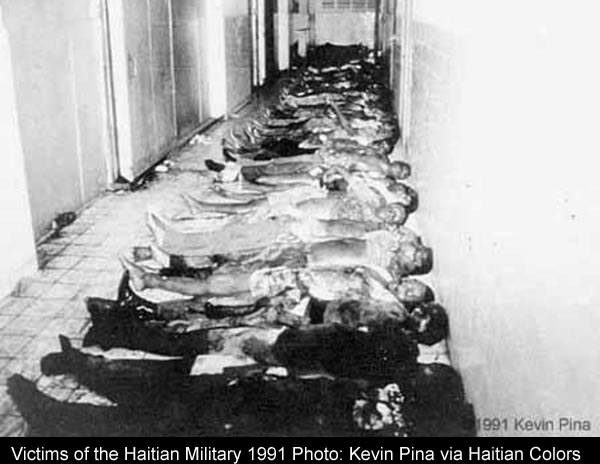
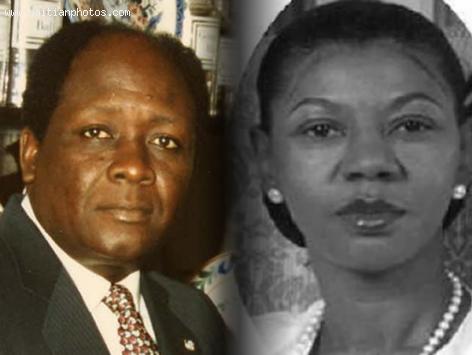


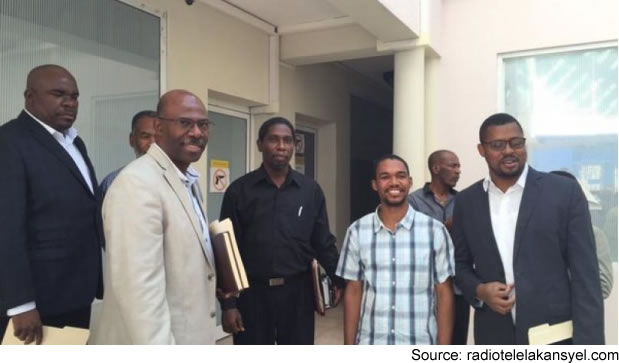

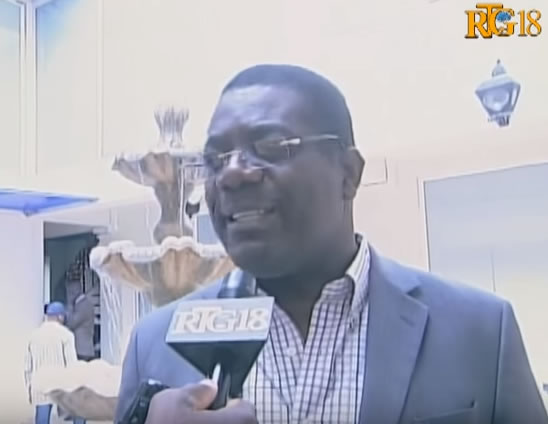


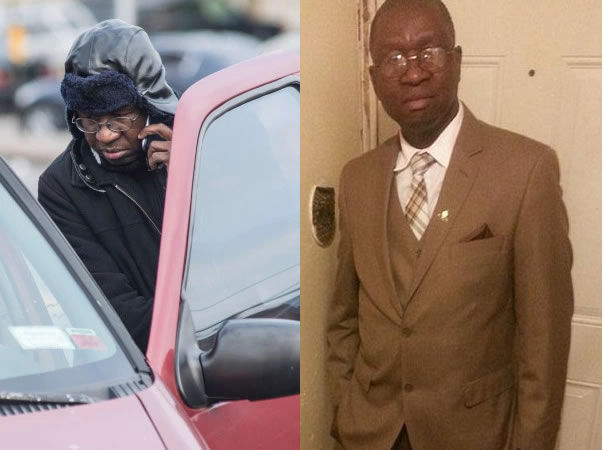
 François Nicolas Duvalier Potential Candidate for President of...
François Nicolas Duvalier Potential Candidate for President of...  Church Avenue Bakery Haitian Patties
Church Avenue Bakery Haitian Patties  Texaco Gas Station In Haiti
Texaco Gas Station In Haiti 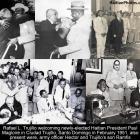 Rafael L. Trujillo welcoming Paul Magloire in Santo Domingo
Rafael L. Trujillo welcoming Paul Magloire in Santo Domingo  Jean Henry Céant deposited documents in Parliament for...
Jean Henry Céant deposited documents in Parliament for...  Haitians, the second largest black immigrant group in the US
Haitians, the second largest black immigrant group in the US 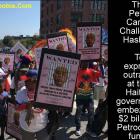 The Petro Caribe Challenge hashtag
The Petro Caribe Challenge hashtag 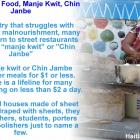 Haiti Street Food, manje kwit or Chin Janbe, for $1 or less
Haiti Street Food, manje kwit or Chin Janbe, for $1 or less 